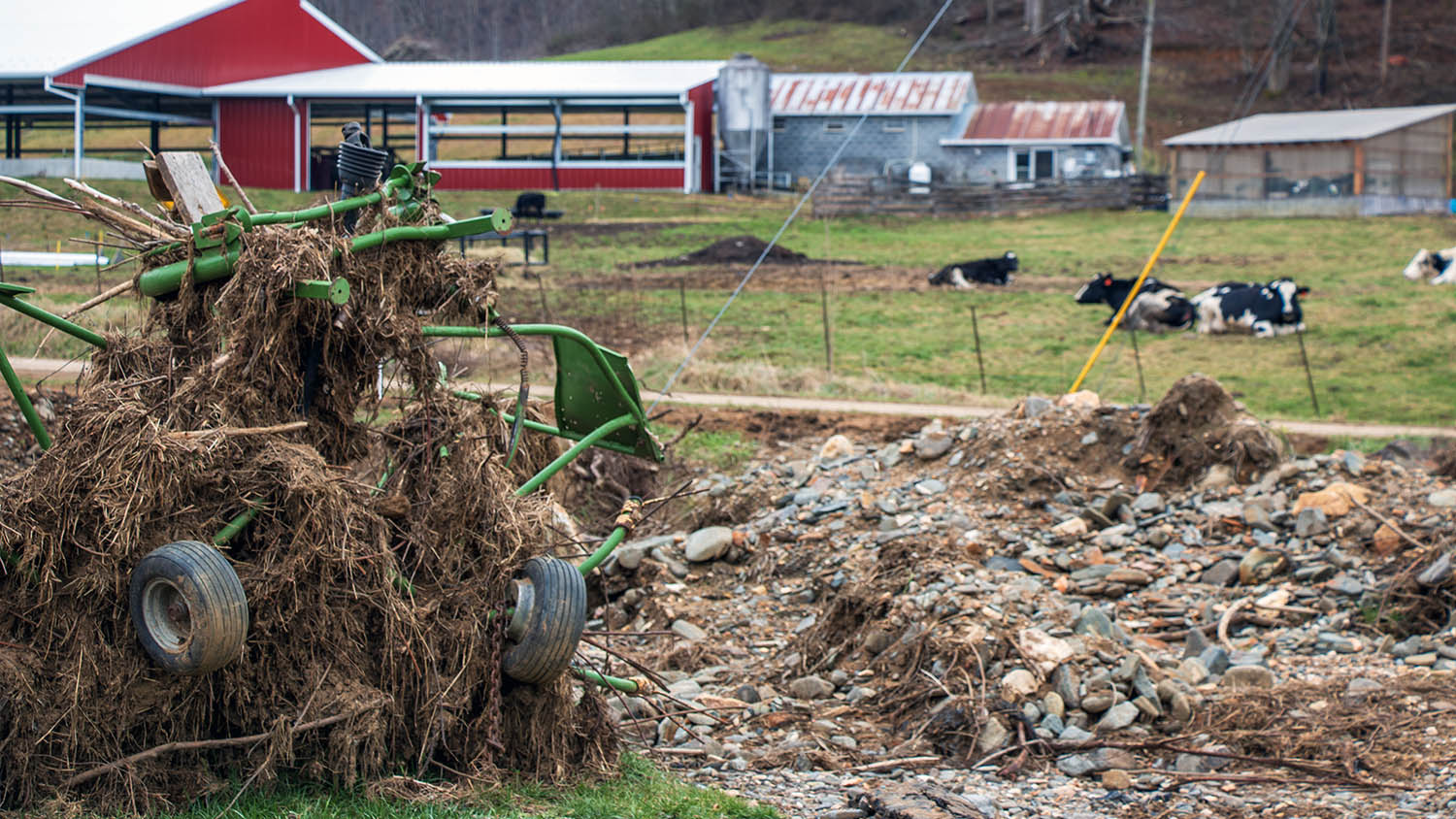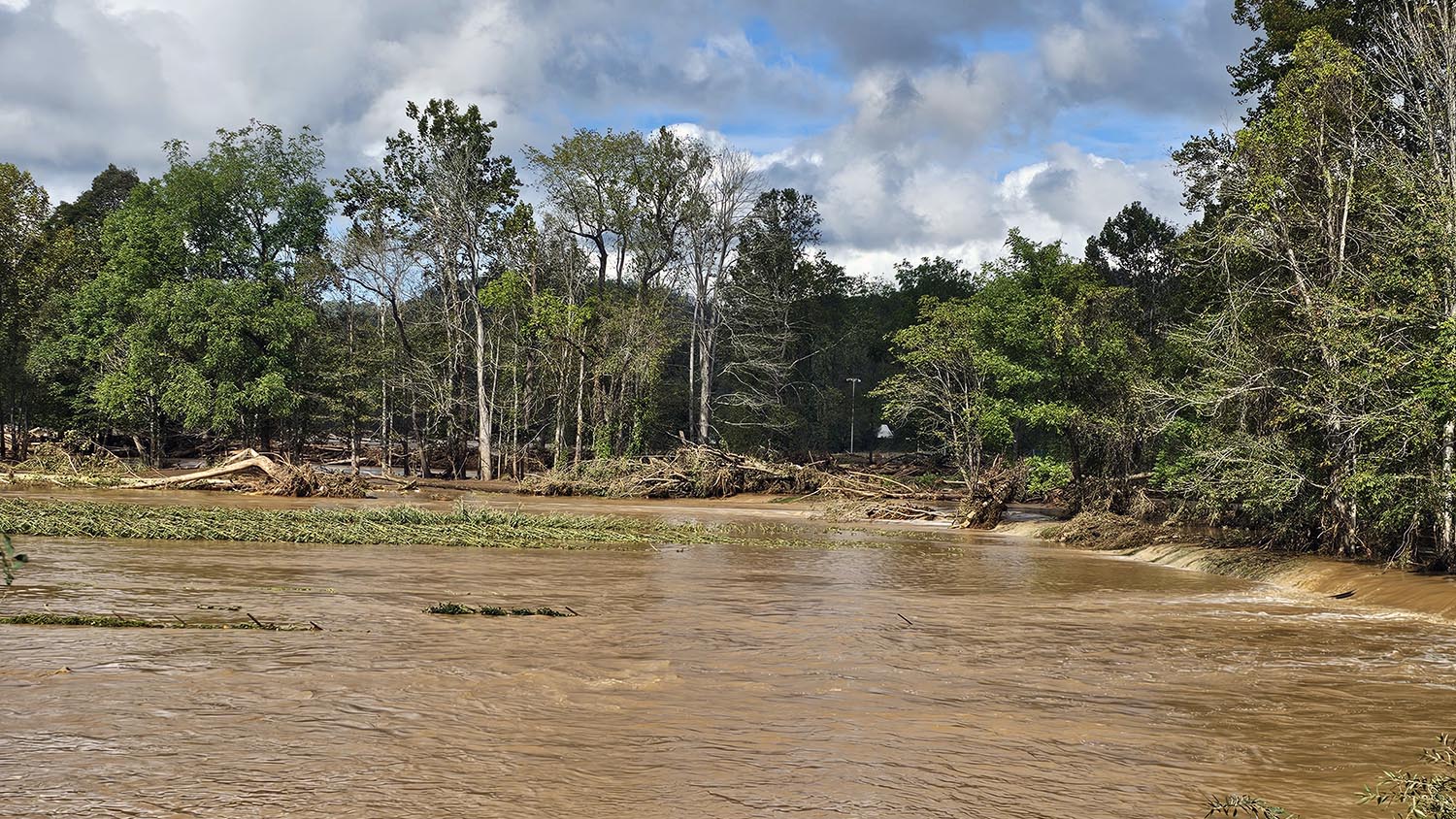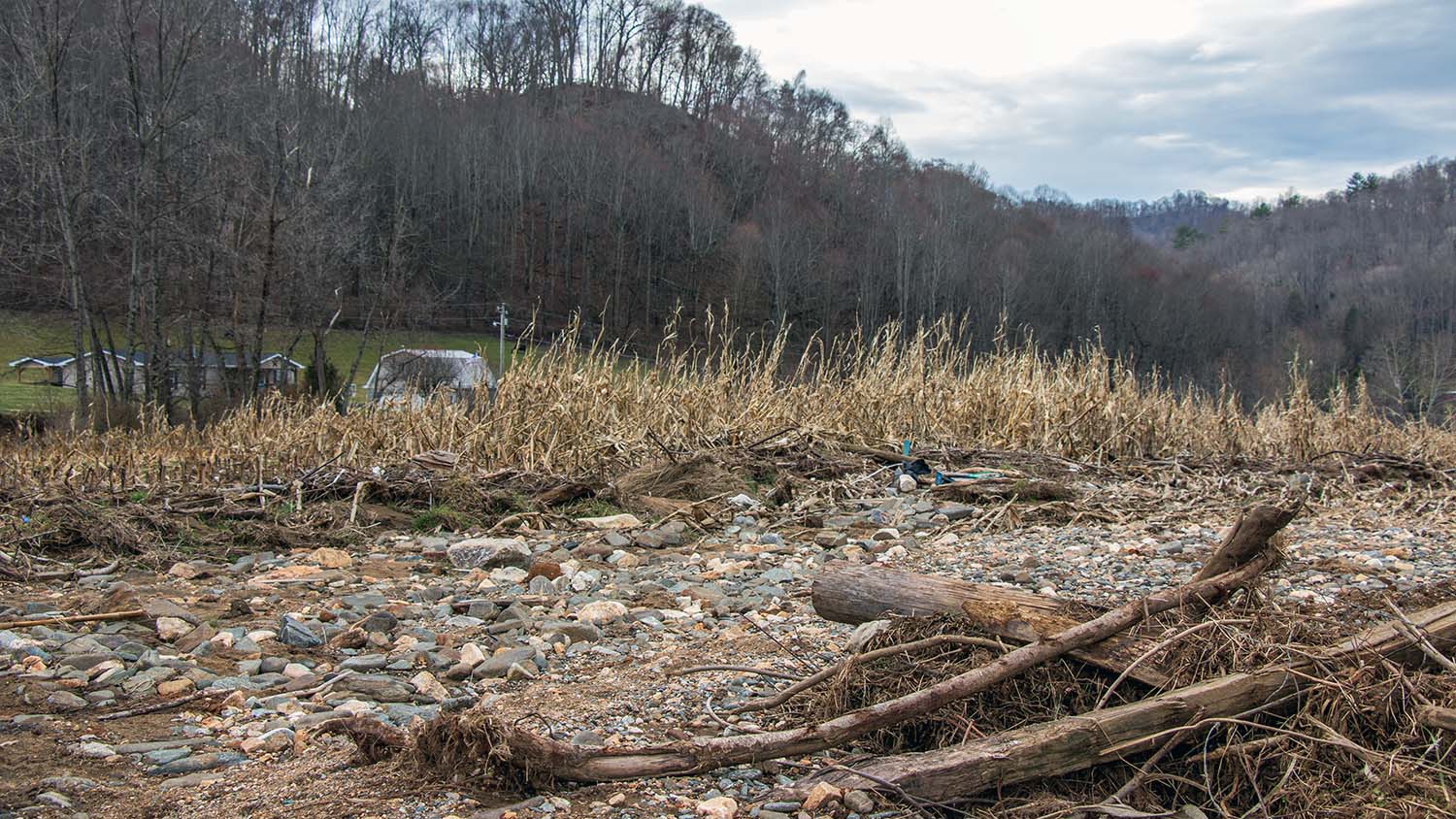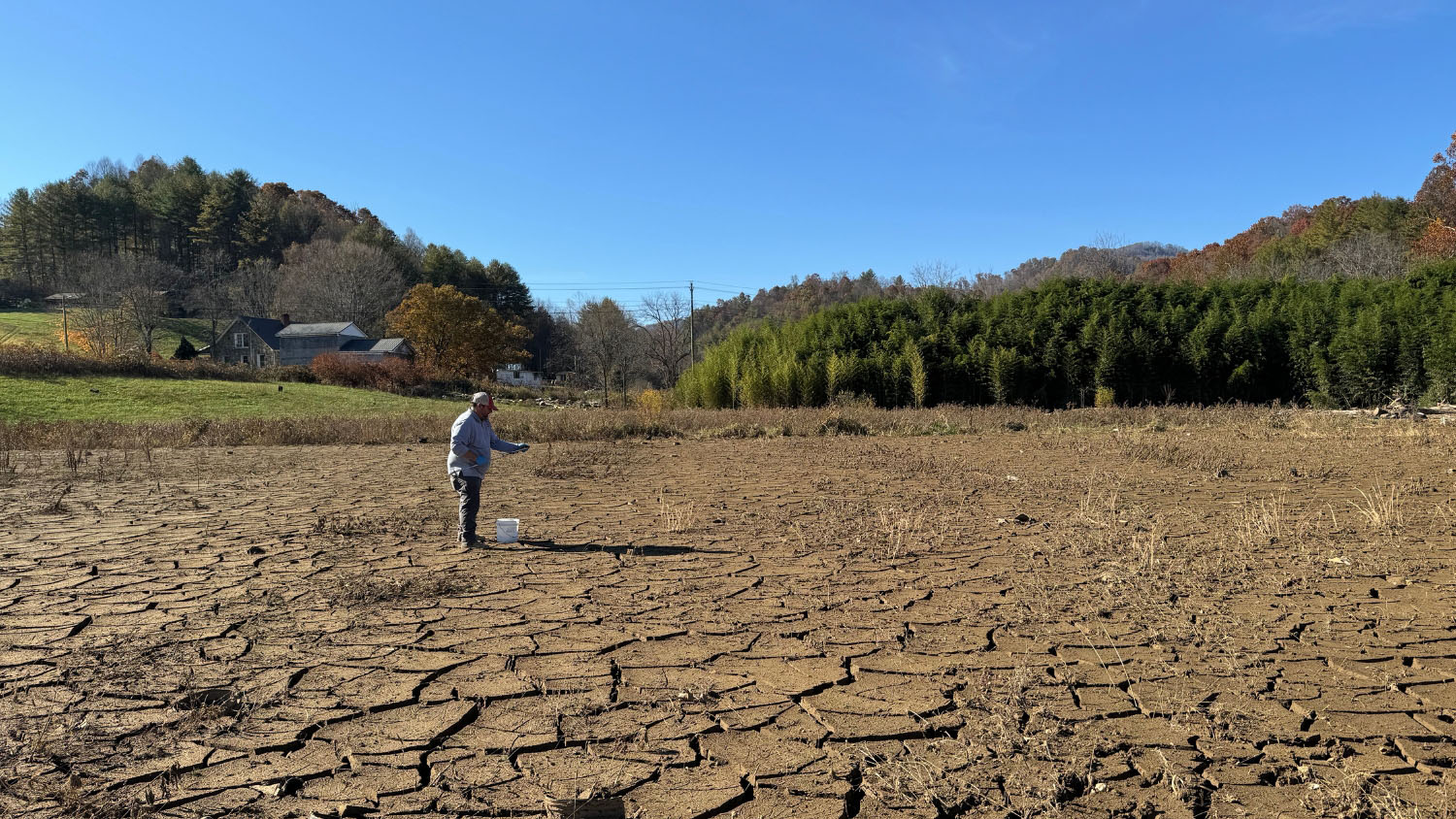Extension Works to Rebuild Lives, Renew Hope in Western North Carolina
go.ncsu.edu/readext?1044999
en Español / em Português
El inglés es el idioma de control de esta página. En la medida en que haya algún conflicto entre la traducción al inglés y la traducción, el inglés prevalece.
Al hacer clic en el enlace de traducción se activa un servicio de traducción gratuito para convertir la página al español. Al igual que con cualquier traducción por Internet, la conversión no es sensible al contexto y puede que no traduzca el texto en su significado original. NC State Extension no garantiza la exactitud del texto traducido. Por favor, tenga en cuenta que algunas aplicaciones y/o servicios pueden no funcionar como se espera cuando se traducen.
Português
Inglês é o idioma de controle desta página. Na medida que haja algum conflito entre o texto original em Inglês e a tradução, o Inglês prevalece.
Ao clicar no link de tradução, um serviço gratuito de tradução será ativado para converter a página para o Português. Como em qualquer tradução pela internet, a conversão não é sensivel ao contexto e pode não ocorrer a tradução para o significado orginal. O serviço de Extensão da Carolina do Norte (NC State Extension) não garante a exatidão do texto traduzido. Por favor, observe que algumas funções ou serviços podem não funcionar como esperado após a tradução.
English
English is the controlling language of this page. To the extent there is any conflict between the English text and the translation, English controls.
Clicking on the translation link activates a free translation service to convert the page to Spanish. As with any Internet translation, the conversion is not context-sensitive and may not translate the text to its original meaning. NC State Extension does not guarantee the accuracy of the translated text. Please note that some applications and/or services may not function as expected when translated.
Collapse ▲The numbers in the aftermath of Hurricane Helene’s devastating journey through the Appalachian Mountains of North Carolina are staggering. Rainfall that exceeded 30 inches in some places. Wind gusts over 100 mph. At least 103 deaths. More than $53 billion in damage.
As awful as they are, there’s something the statistics can’t possibly measure — the sense of despair after the storm passed. Houses were flooded. Roads were destroyed. Cell service was down. Power was out. There were shortages of food, water and medicine, and no good way to get supplies in. The scope of the disaster was overwhelming.
“When we saw the floodwaters in places that we’ve never seen before, we knew it was going to be bad,” said David Davis, director of the NC State Extension center in Yancey County. “This was from county line to county line. We had catastrophic damage in every community. I’ve worked disaster relief after Hurricane Katrina. I’ve worked after tornadoes, and after hurricanes. I’ve never seen anything like this. It’s just unimaginable.”

The Cane River flooded in Yancey County. When waters receded, fields were covered with mud.
Davis is also Extension’s agriculture agent, and a farmer himself. His thoughts quickly turned to his friends and neighbors who were gravely impacted by the storm. Farmers had lost crops and livestock. They lost the means to feed their herds. They were in peril of losing their livelihoods.
“I had one fella that lost all of his hay,” Davis said. “He’d worked all summer long to grow that hay to feed his cows. And he lost it all. I said, ‘Okay, how are you doing?’ He said, ‘I think this is it. I’m done. I’m just going to have to sell all my cows and be out of business because I have nothing to feed them with this winter. I’m not going to watch them starve to death.’”
It was a familiar refrain. The loss of hay and fencing potentially meant the loss of livelihoods for cattle farmers throughout the county.
Davis began making phone calls as soon as cell service was restored. Extension centers across the state and partners in and beyond North Carolina were eager to help. Davis set up a couple of donation and distribution sites, including one at his family produce farm.
“When we started getting hay in, he was one of the first ones we got loads to,” Davis said. “We were just about able to replace every roll he lost. After the first load I said, ‘So what do you think?’ He said, ‘Well, this will get us through a couple of weeks.’ He came back and got another load and he said, ‘This will get us through another couple of weeks.’ When he started realizing he could get through winter, his whole demeanor changed. The light in his eyes changed.”
Helene cut a swath of destruction across Western North Carolina, devastating counties and communities. And across Western North Carolina, Extension personnel mobilized to help.

Floodwaters from Hurricane Helene deposited debris and damaged farm equipment throughout the region.
They set up and staffed sites that distributed water, food and medicine to vulnerable people. They helped coordinate airdrops of vital supplies. They worked with partners to coordinate donations and disbursement of hay, feed, fencing and other livestock supplies. They rounded up animals roaming free.
Related: Extension plays vital role in hurricane recovery
Davis and his team cannot offer quick and easy fixes after a disaster this immense. But they can offer hope.
“That’s what I want to do,” Davis said. “That’s why I’m here. That’s why my staff is here.”
As soon as they could get out after the storm, Extension staff in Yancey County began helping in any capacity they could. Davis became a grill master at the fire station in his community, which had become a shelter for people forced from their homes. When he had cell service he contacted Baptists on Mission and North Carolina-based Samaritan’s Purse to help coordinate their disaster response, which included shower and laundry units.
Agriculture technician Adam McCurry worked with search and recovery, delivered emergency supplies door to door, and with his wife, a nurse, helped set up a mobile medical clinic. Vivian Hollifield, an administrative support specialist, coordinated volunteers in her community.
“Feeding flood victims and first responders at the fire department wasn’t necessarily in the job description, but that was a need, and that’s how we could help them,” Davis said. “We all just asked that same question, how can we help? And that’s what we did. We were hauling generators, we were helping set up distribution sites, we were helping recover equipment and tools, distributing water and supplies. I was hauling hay to farmers, just square bales on my pickup, and checking on people. Our role changed pretty much every day for a little while.”

David Davis’ produce farm remained flooded more than 24 hours after Hurricane Helene passed. Davis is director of NC State Extension’s center in Yancey County.
Davis is a frequent volunteer with the North Carolina Baptist Men. He has helped disaster victims across the country. This was different. He grew up in Yancey County. He farms and operates a produce stand with his dad. As Extension’s county director and agriculture and horticulture agent, he is in the community just about every day. These disaster victims were his neighbors.
“We lost people in this county,” he said. “Some of the people that were lost, they were customers of my dad’s produce stand. I grew up with them shopping at our produce store. My wife is a teacher. She lost a kid that was in her class last year. That’s tough. That’s a lot different. They’re not just names on a list. On the news they talk about this many dead or this many that lost their homes. Here, Mr. Silver down on the river and his daughter, Vanessa, lost their home. Vanessa went to school with my sister, and Mr. Silver has been a customer at our produce stand for years. I did a home visit back in the summer, looking at his bushes and giving him a recommendation.
“It is much, much more personal. It lights a fire under me to try to help.”
Davis wants to pass on the care and compassion his family received from an Extension agent after a disaster when he was a boy.
“We got flooded in August 1994,” he said. “We didn’t get to harvest a stick of tobacco that year. We had 3 or 4 acres of tomatoes. We didn’t get to pick a tomato. Most of our crops got washed away. I was probably 7 or 8. I had never seen my dad cry. He was crying. He looked at me and my sister, and told my mom, ‘I don’t know how I’m going to feed them this winter.’”
The N.C. Cooperative Extension agriculture agent back then was Claude Deaton. He arrived when Davis’s father was at his lowest ebb.
“Claude had this old gray Ford truck with a Cooperative Extension tag on the front,” Davis said. “I’ll never forget that truck pulling into the parking lot of the produce stand. My dad went to Claude and said, ‘I don’t know what I’m going to do.’ Claude said, ‘Well, first thing we’re going to do is drain the oil out of your tractor. We’re going to clean the motor out and we’re going to get your tractor out of the field. We’re going to start getting the equipment out and we’re going to start cleaning your field. We’re going to get you ready to plant next year.’”

Floodwaters knocked down trees, ruined crops, and deposited rocks in farmland.
Having a plan, a place to start, made a tremendous difference. So did having someone who was there for the family at a time of great need.
Even as a young boy, Claude’s example gave Davis a future career path.
“I decided I wanted to go into Extension,” he said.
After providing glimmers of hope, one conservation and a few hay bales at a time, his focus is changing to long-term recovery.
“Our biggest challenge is how do we help farmers access enough resources to where they’re willing to stay in the business of farming,” he said. “That’s my focus. My goal is to take as much burden off farmers as I can to keep them farming. There’s very few pieces of farm ground in this county that weren’t impacted in some way. Some of it is minor, some of it’s debris. A lot of it is major. It’s soil loss or silt accumulation.”
Related: Extension promotes resilience, renewal for N.C. apple growers
Extension has a big role to play in the recovery. Davis will conduct soil tests and make planting recommendations. There is also an opportunity to put some exemplary practices in place.
“Before, it didn’t make sense for farmers to replant their fescue fields with novel endophyte. Now the fields are dead, so we have an opportunity to get some novel endophyte seed. A lot of them now realize how important it is to keep records. Some of the Extension outreach we were trying to do before, the storm has given us a platform to do it even better. It’s given our producers even more of a reason to come to us. That’s what we’re going to be doing here in Yancey County. We’re still asking that same question, how can I help, and how can I help so you’re better off in the future? We’re trying to turn our lemons into lemonade.”

Luke Gatiboni, a researcher with NC State’s Crop and Soil Sciences department, takes soil samples from a field that had been flooded.
Davis also sees a role for researchers from NC State’s College of Agriculture and Life Sciences.
“We’re soil testing and a lot of these situations we’re seeing, we don’t have remedial recommendations for. It’s taken us reaching out to our specialists at the university,” he said. “There’s a lot of research that can go on right now in our county, in Mitchell County, Haywood County, Buncombe County, counties that were affected in their farm grounds. There’s water research that could be happening to fix this area.”
Related: NC State researchers evaluate flooded soil
While Davis is focused on helping farmers recover, his staff is and has been helping with other needs, including with children and families impacted by the storm. Extension Family and Consumer Sciences agent Niki Maness and 4-H program assistant Jazlyn Swain partnered with a local nonprofit to host a fun event for children. They and administrative assistant Pam Sharp handed out candy on the Burnsville town square at Halloween. They are working with agents throughout the region to provide Christmas gifts through the Angel Tree program.
“I see us having a big role helping kids with mental health, helping them cope,” Davis said. “The relationships we’ve built between our 4-H staff and kids and their families, and the opportunities that we have through our programs, that’s going to be a big part of recovery. Our schools still need support too, and we’re going to be partnering with them and offering in-school programs. We just want to be an open hand to the parents and the families. It’s not so much the actual activities we’re doing as much as just being there for people in our community.”
It can’t be fixed tomorrow, but Extension experts in Yancey County and throughout the region will continue to show they care. They will continue to give hope to people impacted by the storm in Western North Carolina.
“That’s most of what we do,” Davis said. “I’m really proud to be a part of Extension. It’s good to be a part of an organization that is helping people in this way. It’s that way for all my staff. We know these people. These are people that we’ve done business with and talked to, the people we see down the road or in the grocery store. I believe every one of us is motivated a little bit more in the work we’re doing.”

